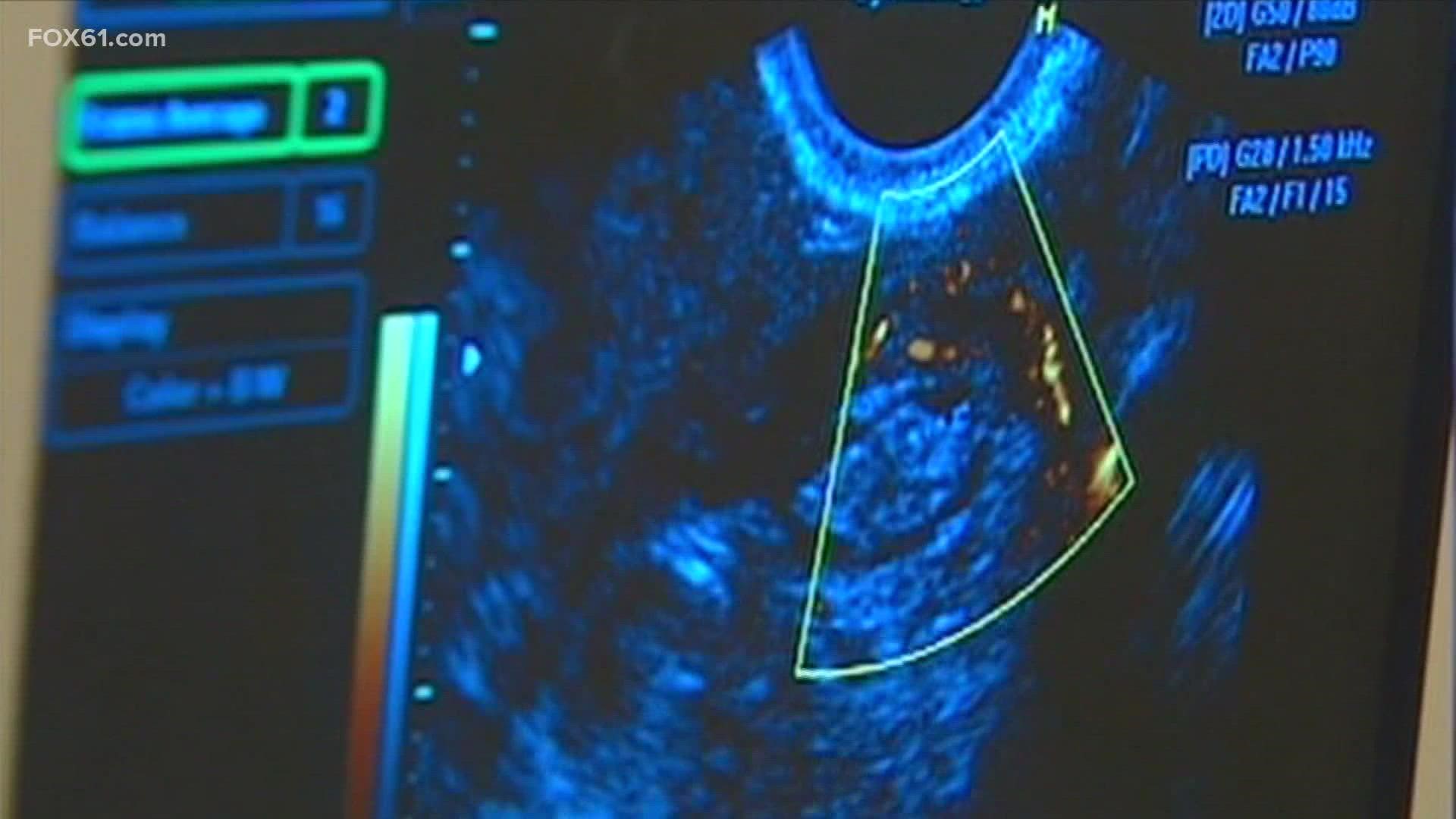HARTFORD, Conn — Black women are disproportionately diagnosed with uterine fibroids, typically non-cancerous growths within the uterus.
St. Francis Hospital OB/GYN Dr. Soana Laguerre describes it as a common diagnosis that starts in the muscle layer of the uterus.
“On average, it’s estimated about 70% percent of women will have a uterine fibroid by the time they hit menopause,” Dr. Laguerre said. “It is in higher prevalence in African-American women, about 2-3 times more common.”
Dr. Laguerre said women living with fibroids can have one or multiple that vary in size, shape or location, and they can also grow to larger sizes.
The symptoms a woman may experience varies, but some women may not notice any as the condition is often asymptomatic.
Dr. Laguerre said uterine fibroids are sometimes not seen until death in some patients because they were never aware they had them.
Here are some of the symptoms Dr.Laguerre said some patients may experience:
- Bleeding abnormalities such as heavy or prolonged bleeding, which can also lead to anemia during menstrual cycles
- Menstrual cramps or dull, achy pain
- Bulk symptoms such as pressure in the pelvis, constipation, or frequent urination
Shayla Compton decided to seek medical attention after noticing some pain during her workouts.
She received her diagnosis in February 2020, shortly before the pandemic began hitting hospital systems hard.
"It wasn't an acute pain, but I could feel something below the surface, something below the muscle that was moving," Compton said. "I also started to notice abnormal times when a menstrual cycle would start and stop or the flow of a menstrual cycle would be pretty heavy compared to a few cycles before."
After receiving her diagnosis, Compton said she began to learn more about her family's medical history.
"My mother had a hysterectomy due to uterine fibroids, my older sister has had a hysterectomy due to uterine fibroids," Compton said. "I've had cousins on that side of the family that have had a myectomy to treat uterine fibroids."
Compton has not had to undergo surgery or take any medication for her fibroids.
She works with the Center for Black Health & Equity, doing outreach work with communities to help other women take charge of their health, and make them aware of the resources available to them.
"Common does not mean normal," Compton said. "You are deserving of having your concerns heard and not being dismissed by any provider or by family members. If you are experiencing pain on a routine basis, if you are making decisions that are limiting your ability to be active in your life and are affecting your quality of life, you're not alone."
Although rare, uterine fibroids can also affect women during pregnancy, depending on where the fibroid is located.
“For most, it’s typically the fibroid is in a location, for example, blocking the tube or blocking the cervix but it is rare,” Dr. Laguerre said. “More commonly, people have infertility for other reasons. Once a woman actually gets pregnant, then fibroids can affect pregnancy. It typically depends on the location. It can cause miscarriages and that’s usually with fibroids that are in the uterus, under the lining of where the fetus or baby is supposed to be growing. Some women can have pain in their pregnancy if the fibroid starts to degenerate or die off, and rarely some women, if they have a large fibroid for example that blocks low in their uterus or low in their cervix, it can actually change how they’re going to deliver. The baby might not be able to make it past the fibroid and they’ll need a C-section. Those are rare, but it’s possible.”
The water starts to get murky when it comes to pinpointing why Black women are affected more than women of other races.
“It’s suspected there is a genetic element or predisposition for this,” she said. “However, there’s no specific gene that has been identified to be the cause of this. Other associations in some small studies that they’ve noticed are, maybe it’s related to obesity or vitamin D deficiency which are slightly more prevalent in African-American women. However, again, there are no specific studies that show the reason why Black women are more affected.”
She went on to say its unclear why women develop fibroids but there are some factors that could be associated with the condition including the following:
- Being pre-menopausal
- Family history
- A large gap of time between births
- Hypertension
- Obesity
Some women may believe living with the condition means a hysterectomy might be down the line for them, but Dr. Laguerre said that’s not the first option and there are several other options when it comes to treatment.
Here are some of the treatment options Dr. Laguerre discussed:
Observation: includes monitoring the fibroids, typically for women who are asymptomatic or have mild symptoms.
Medical: Includes non-hormonal and hormonal medicines such to slow down or improve bleeding and shrink fibroids in symptomatic patients
Interventional: includes a uterine artery embolization procedure, which includes putting a catheter in the blood vessel leading to the uterus and fibroid to block off the blood vessel leading to fibroid
Surgery: myomectomy to remove fibroids
Dr. Laguerre noted there have been a decreased incidents of uterine fibroids in women that had more children, used birth control pills, or the Depo-Provera shot.
Symphonie Privette is a reporter at FOX61 News. She can be reached at sprivette@fox61.com. Follow her on Facebook, Twitter and Instagram.
Have a story idea or something on your mind you want to share? We want to hear from you! Email us at newsteam@fox61.com
HERE ARE MORE WAYS TO GET FOX61 NEWS
Download the FOX61 News APP
iTunes: Click here to download
Google Play: Click here to download
Stream Live on ROKU: Add the channel from the ROKU store or by searching FOX61.
Steam Live on FIRE TV: Search ‘FOX61’ and click ‘Get’ to download.

